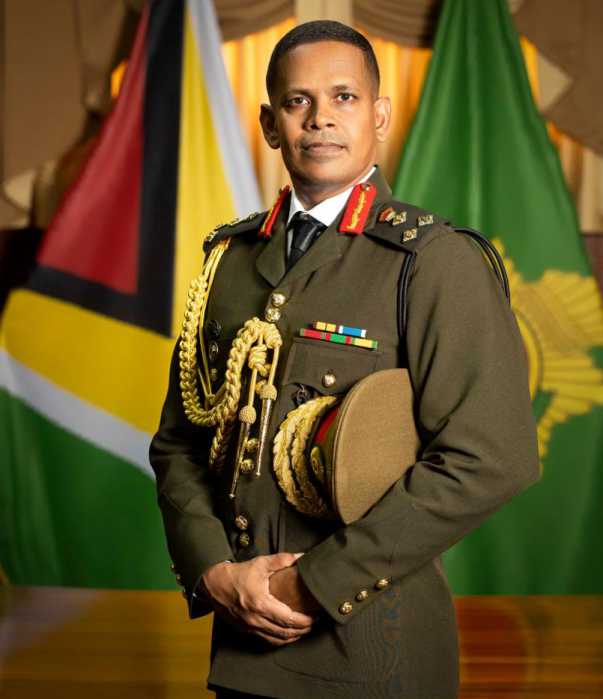President David Granger met with UN Secretary General Ban Ki Moon at the UN Headquarters, on Friday, during the 50th Anniversary of the signing of the Geneva agreement to resolve the controversy over the frontier between Guyana and Venezuela – and later stated that he is satisfied with the progress being made at the United Nations to bring an end to the ongoing conflict.
Immediately after meeting with the secretary general, Granger who was accompanied by VP, Minister of Foreign Affairs, Carl Greenidge and Guyana’s Permanent Representative to the UN, George Talbot, told the media gathered at the Guyana Mission to the UN, that he met the Ban ki Moon to report on the state of the Guyana Venezuela controversy, and to receive the SG’s assessment and progress towards a peaceful settlement.
Granger noted that in less than 100 days Guyana will be celebrating its 50th year of independence, and blamed neighboring Venezuela for obstructing Guyana’s economic development, dissuaded foreign investors from coming into Guyana’s territory.
He added that in October 2015, Venezuela’s Ambassador to Ottawa threatened a Canadian petroleum vessel with military aggression demanding that drilling in Guyana’s Mazaruni River be halted.
“Guyana has cooperated fully with the UN process authorized under the Geneva agreement, and the only recourse is a peaceful settlement to this dispute,” adding, “for 50 years now it has been the UN Secretary General’s responsibility to seek a peaceful resolution, and over the last 10 months in particular, we have expressed our satisfaction at the role Ban Ki Moon has played. He has been fully engaged,” said the politician.
“This year we are looking forward to a swift settlement on the part of all three parties. We have made it quite clear that this is the only outcome we deserve, and we would do everything possible to make sure the process is not delayed by Venezuela.”
Granger added that Guyana is convinced the secretary general has a role, and an opportunity to bring this matter to a conclusion that is satisfactory to all parties. The head of state is optimistic that UN officials will once again visit Guyana to continue its diplomatic talks that began last year in Georgetown.
Vice President and Minister of Foreign Affairs, Carl B. Greenidge, said conciliation and mediation, are other ways to pursue a peaceful agreement than military action. This was a direct response to how the 2016 budgeted funds would be used for security.
“The Guyana Defense Force has a role to play in defense of our territory, but diplomacy and peaceful options are important. The money budgeted would be set aside for resources for our military, not for military action.”
“We will speak with the international community and work with countries in the region, and the United Nations for a peaceful resolution to this conflict,” said Greenidge.
Elder statesman and former Minister of Foreign Affairs, Sir Shridath Ramphal who was part of the delegation, said he is confident that the Commonwealth, that has been supportive of Guyana on many matters, Britain, for example that has been a signatory on the Geneva agreement, and the United States, a superpower with investments in both oil and gold, would not allow serious threats against Guyana.
Also present at the briefing was Mr. Payam Akhavan, legal counsel to the United Nations.

























